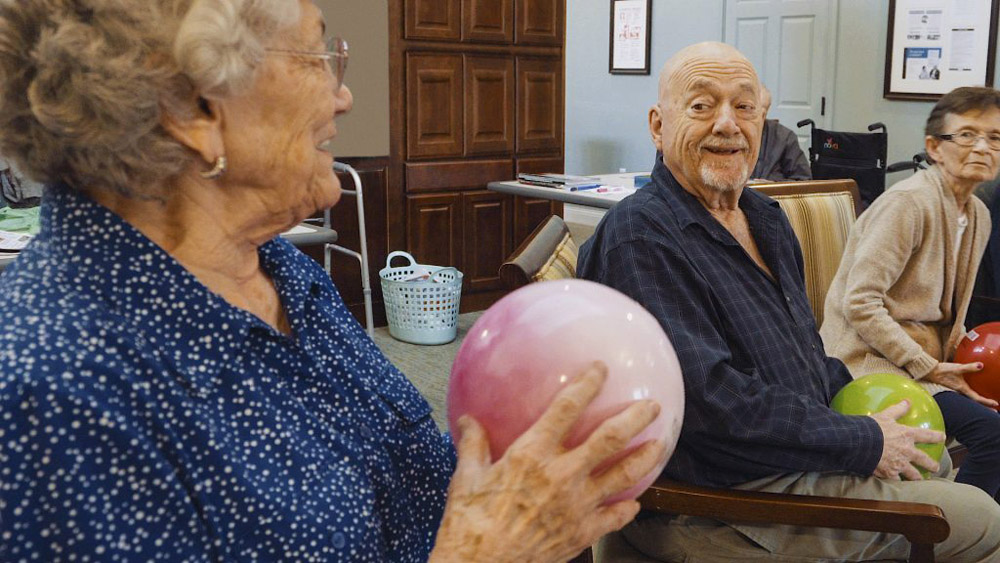What Makes Memory Care the Ideal Option for Seniors with Cognitive Decline?
Navigating Memory Care Options: What Families Need to Know
As family members deal with the challenging job of maneuvering memory care options, it is vital to come close to the decision-making procedure with a clear understanding of the varied sorts of care available. From property centers to at home help and adult day care, each choice presents one-of-a-kind advantages and considerations. Examining these centers needs a detailed assessment of personnel qualifications, precaution, and the overall setting. Nonetheless, the journey does not finish there; monetary effects and offered assistance resources additionally play a crucial function in shaping notified options for liked ones. What aspects should households focus on in this complex landscape?
Recognizing Memory Care Keys In
Regularly, people and households encountering the difficulties of cognitive decline encounter different kinds of memory care alternatives made to meet diverse requirements. Memory care can be generally classified into household care centers, in-home care, and adult daycare solutions. Each choice uses one-of-a-kind advantages customized to certain requirements - Alzheimer’s Care Charlotte.Residential care centers, usually referred to as memory care systems, offer customized atmospheres with trained personnel who concentrate on the special requirements of citizens with dementia or Alzheimer's illness. These centers normally use organized routines, safe and secure settings, and social tasks focused on improving cognitive function.In-home care allows people to remain in the convenience of their own homes while getting tailored aid from caregivers. This alternative provides flexibility and can be readjusted according to the patient's evolving needs, promoting knowledge and comfort.Adult day care solutions provide short-lived care throughout the day, enabling caregivers respite while making certain that their liked ones take part in promoting activities. This option can be especially advantageous for family members stabilizing job and caregiving responsibilities.Ultimately, understanding these memory care types encourages family members to make enlightened choices that enhance the lifestyle for their loved ones facing cognitive decline
Reviewing Care Facilities
When evaluating care facilities for people with memory impairments, it is vital to sift through various factors that add to an encouraging and efficient atmosphere. Begin by taking a look at the center's staff credentials and training, guaranteeing that caretakers possess specialized understanding in memory care. A high staff-to-resident ratio is important, as it typically indicates individualized interest and care.Next, consider the facility's physical atmosphere. It must be secure and safe and secure, with functions that decrease confusion and advertise independence. Try to find clear signage, organized layouts, and sensory stimulation that can boost locals' involvement. Additionally, ask about the programs and tasks offered, as these must be tailored to locals' cognitive degrees and interests, promoting social communication and cognitive stimulation.Furthermore, observe the total ambience during your see. An inviting and thoughtful society is important for the well-being of locals. Interaction with family members is another vital facet; centers should keep open lines of discussion relating to locals' progress and demands. Seek comments from present residents' households to assess fulfillment and experiences, as this can provide understandings into the facility's total high quality of care and support.
Key Considerations for Family Members
Selecting a memory care center is a significant choice for family members, and comprehending crucial considerations can promote a smoother process. Initially, examine the facility's online reputation and top quality of care. Research on the internet testimonials and look for suggestions from healthcare professionals or assistance teams. Seeing prospective centers is crucial; observe the atmosphere, personnel interactions, and total cleanliness.Next, assess the staff-to-resident ratio, as a reduced proportion usually indicates more personalized attention. Ask about staff training and experience, particularly pertaining to memory care, to ensure they are outfitted to manage the certain requirements of residents.Consider the center's layout and style. A safe and secure, conveniently accessible environment can boost security and comfort for people with cognitive disabilities. Look for appealing activities that advertise socialization and cognitive stimulation, which are vital for residents' health. Lastly, interaction is imperative. Verify the facility preserves open lines of communication with family members regarding their enjoyed ones' progression and any type of problems. By considering these elements, households can make enlightened decisions that best support their liked ones in a memory care setup.
Financial Aspects of Memory Care
Steering via the monetary facets of memory care is important for family members, as prices can differ significantly based on place, center type, and the level of care called for. Memory care facilities typically vary from $3,000 to $7,000 per month, with higher-end centers using specialized solutions and amenities that add to enhanced costs. Dementia Care.Families have to consider numerous funding alternatives, consisting of exclusive pay, lasting care insurance, and Medicaid. Exclusive pay is the most usual method, however it can quickly deplete cost savings. Long-term care insurance policy can offer monetary relief, though family members ought to verify plan information and protection limitations. Medicaid might cover memory care expenses for eligible individuals, yet the application procedure can be complicated and lengthy.In addition to month-to-month fees, families must likewise anticipate additional expenditures such as medical products, therapy services, and personal things. It is essential to examine the total price of care and potential monetary influence on the family members's spending plan. Involving with an economic expert experienced in older care can supply important understandings and help families make educated choices concerning memory care funding alternatives. Recognizing these financial elements is vital for guaranteeing that care is sustainable and fulfills the needs of enjoyed ones

Assistance Resources for Caregivers
Caregivers play an essential function in supporting individuals with memory disabilities, commonly dealing with distinct challenges that can lead to physical and psychological pressure. To reduce these challenges, various assistance resources are readily available to caretakers, equipping them with the tools and aid they require to offer ideal care.Local and national organizations, such as the Alzheimer's Organization, provide instructional resources, support system, and helplines that attach caretakers with others in comparable scenarios. These systems supply possibilities for sharing experiences, recommendations, and emotional support, which can be vital in lowering feelings of isolation.Additionally, break care solutions allow caretakers to take time-outs, guaranteeing they can reenergize and reduce exhaustion. Lots of communities also provide grown-up day programs, which offer structured tasks for individuals with memory problems, providing caretakers a much-needed reprieve (Memory Care Charlotte).Furthermore, online sources, including webinars and forums, can boost caretakers' understanding about memory care ideal practices. Involving with these support group not only promotes resilience yet likewise enhances the quality of care offered to people with memory impairments. Inevitably, leveraging these resources can significantly influence caregivers' health and their capability to support their loved ones efficiently
Frequently Asked Inquiries
What Are the Indications That Memory Care Is Required?
Establishing the requirement for memory care can be challenging. Trick get redirected here signs consist of considerable memory loss impacting daily tasks, regular disorientation or confusion, problem with communication, and adjustments in behavior or state of mind. Additionally, if an enjoyed one displays risky actions, such as wandering or ignoring individual hygiene, these may suggest a demand for specialized care. Early intervention is necessary, permitting families to check out ideal memory care options tailored to private requirements.
How Can Families Connect Effectively With a Loved One in Memory Care?
Efficient communication with an enjoyed one in memory care needs persistence, compassion, and simplicity. Use clear, uncomplicated language, and participate in one-on-one discussions in a silent environment to minimize disturbances. Nonverbal cues, such as eye contact and mild touch, can enhance understanding. Urge the specific to share their sensations and ideas, proactively pay attention, and confirm their feelings. Uniformity in regular and familiar topics can also cultivate a complacency and connection.
What Activities Are Typically Supplied in Memory Care Facilities?
Memory care centers commonly offer a selection of tasks made to involve citizens and promote cognitive function - Memory Care Charlotte. Typical tasks include arts and crafts, songs treatment, exercise, horticulture, and team video games that urge social communication. In addition, many facilities provide daily routines that incorporate cognitive stimulation with challenges and reminiscence therapy. These structured programs aim to improve high quality of life, promote a sense of community, and maintain locals' physical and psychological wellness

How Can Family Members Prepare a Family Member for the Shift to Memory Care?
Preparing a liked one for the adjustment to memory care entails numerous vital steps. To start with, connect honestly regarding the move, stressing the benefits of the new setting - Alzheimer’s Care. Familiarize them with the center via check outs, promoting comfort. Entail them in loading personal things to keep a sense of ownership. Furthermore, develop a regimen that consists of regular check outs, guaranteeing they really feel supported and connected. Lastly, resolve their psychological demands, providing reassurance throughout the procedure
What Rights Do Citizens Have in Memory Care Facilities?
Homeowners in memory care facilities are entitled to certain civil liberties that guarantee their dignity and wellness. These civil liberties generally include the right to personal privacy, the right to join choices regarding their care, and the right to receive proper clinical focus. In addition, residents ought to have accessibility to their individual items and the capacity to engage in social and recreational tasks, fostering an atmosphere that supports their freedom and quality of life.